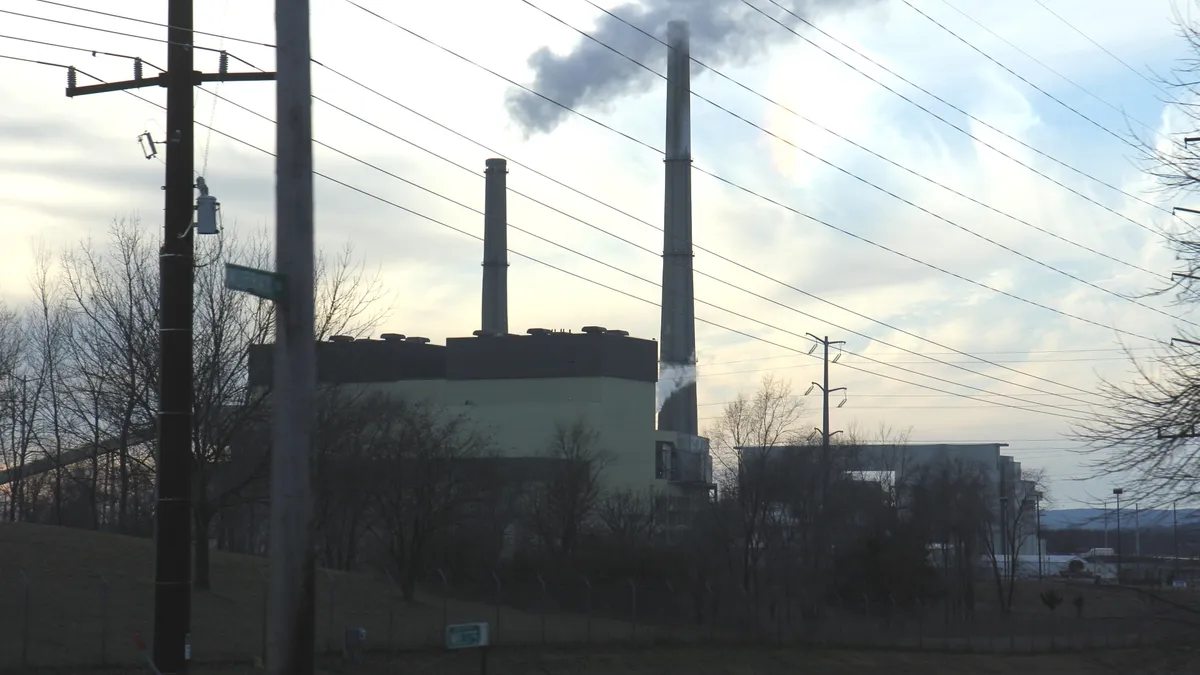Dive Brief:
- Two investor-owned utilities, Alliant Energy and WEC Energy Group, announced plans on Thursday to delay their respective coal plant retirement plans for their Wisconsin subsidiaries by at least a year.
- Alliant Energy intends to retire its Edgewater Generating Station by June 2025, and all of its Columbia Energy Center units by June 2026, delaying both plants by at least 18 months. WEC Energy Group’s Wisconsin subsidiary extended the operation of two units at its Oak Creek site by a year and for two other units by about 18 months, until late 2025, citing tight energy supply conditions in the Midwest power market.
- The announcement follows reports that the Midcontinent Independent System Operator will face capacity shortfalls beginning this summer in its northern and central regions. MISO noted it “will be increasingly reliant on emergency or non-firm resources” to ensure service reliability in those regions as capacity shortfalls are expected to continue.
Dive Insight:
In 2021, Alliant promised to make its Wisconsin subsidiary coal-free by announcing the retirement of its 1.1 GW Columbia Energy Center at the end of 2024. In 2020, the utility had announced plans to retire its 380 MW Edgewater coal unit by the end of 2022. Alliant’s earlier announcements were part of a string of recent utility decisions to end operations of coal generation in favor of cheaper resources, and in pursuit of lower carbon emissions.
But the utility is reversing course in order to promote service reliability, according to the president of Alliant’s Wisconsin subsidiary, David de Leon.
“Shifting the retirement dates for our coal-fired facilities in Wisconsin helps ensure we can weather multiple uncertainties while continuing to add cleaner, renewable energy to the grid,” de Leon said in a statement.
Similarly, other utilities are delaying retirement announcements in order to avoid grid issues or to deal with supply chain constraints, as the Omaha World-Herald reported of a Nebraska public power company.
We Energies, of WEC Energy Group, has 1.1 GW of coal among four older units at its Oak Creek site that were already slated for retirement. Units 5 and 6 would now be retired on May 2024, and Units 7 and 8 will remain operational until late 2025. Those sets of units have been in service since the 1950s and 60s, respectively.
Both utilities remain committed to their decarbonization goals and their targets to retire coal. The state has a zero emissions by 2050 goal in place since 2019, in keeping with targets set by the Paris Agreement.
However, clean energy advocates say “any delay” on coal plant retirement will harm communities and the climate.
“Wisconsin is already behind in bringing new clean energy online – that’s how we got here,” Don Ferber, Sierra Club Wisconsin volunteer leader, said in a press statement. “These utilities have recognized this by affirming intentions to keep climate and new clean energy goals unchanged. It shows adaptability and acknowledgement that clean energy will make a more resilient and reliable grid, and is desperately needed now.”
For example, Alliant has affirmed plans to advance 12 solar projects bringing nearly 1.1 GW of solar generation in Wisconsin.
WEC’s We Energies subsidiary and Alliant noted that conditions in MISO are driving concerns about resilience, in this case prompting the Wisconsin utilities to delay retirements by up to 18 months.
"The decision to postpone the retirement dates for these units is based on two critical factors: tight energy supply conditions in the Midwest power market and supply chain issues that will likely delay the commercial operation of renewable energy projects that are currently moving through the regulatory approval process," Scott Lauber, president of We Energies, said in a statement.
Environmental advocates are asking for collaboration between policy and regulatory forces to expedite a path for utilities to retire their coal assets.
“Regulators, including grid operators like MISO, have a vital role in bolstering those systems by clearing the way for sustainable infrastructure instead of over-reliance on the fossil fuels that are compounding health, economic, and environmental crises,” Ferber said.














